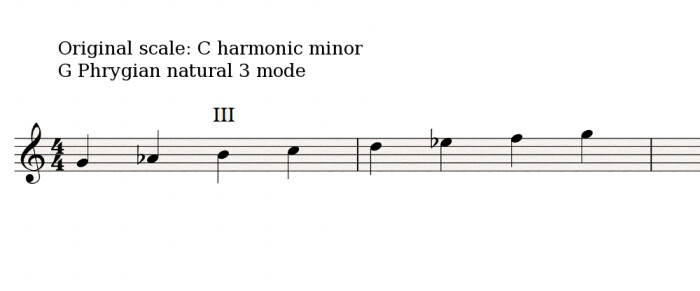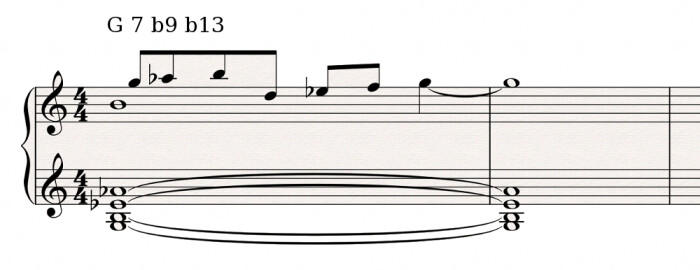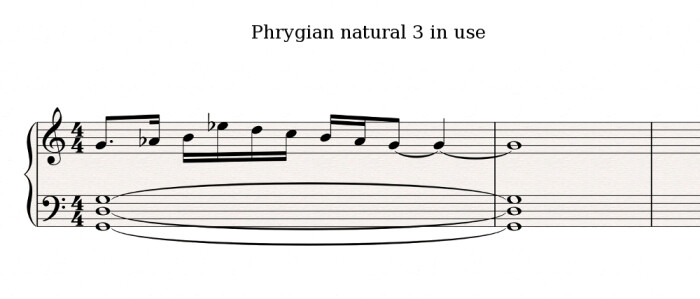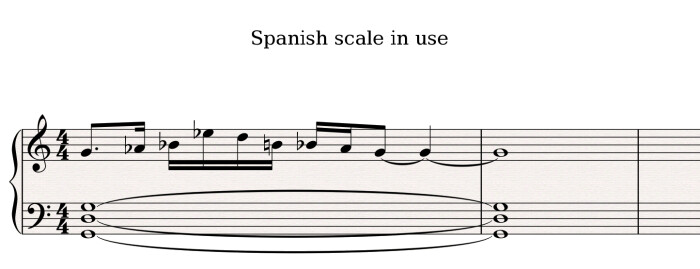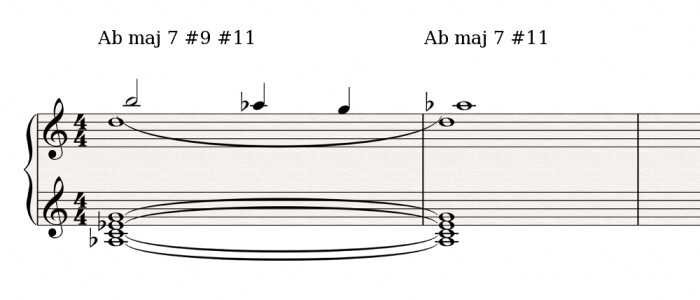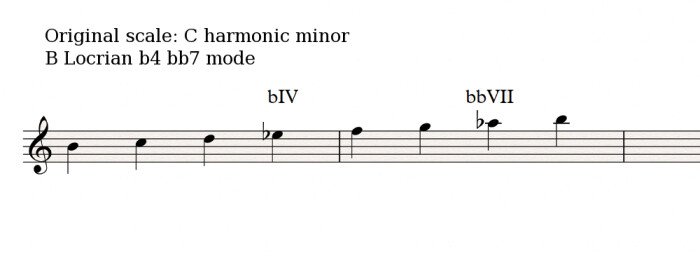Today we'll continue studying the modes of the harmonic minor scale we began last week. I invite you to discover with me...

The Phrygian natural 3 mode, the Phrygian #3 mode and the “Spanish scale”

The Phrygian natural 3 mode is sometimes also called Phrygian #3. This might seem surprising, but the explanation is very simple.
Those who call it like this state that, in relation to the natural Phrygian mode, the third of the altered Phrygian mode we are talking about in half step above, in other words, a #3 according to their logic.
I’ll use here the “natural 3” denomination which seems to be much more common in the literature for the following reason: the third of the natural Phrygian mode is flat and it returns to its “normal” state in the Phrygian natural 3 mode.
The Phryigan natural 3 mode is essentially used with dominant 7 b9 b13 chords.

By the way, there are also some that call this mode Myxolydian b9 b13. This denomination fits pretty well with the harmonic use of the mode, but it diverts from the logic of the nomenclature described in article 62.
But be careful, as always when you use a mode based on the fifth degree of a scale, you can easily slip into a tonal context, as the perfect cadence of the following example shows:

Also note that the Phrygian natural 3 mode is very similar to the so-called octatonic Spanish scale, with which it gets confused quite a lot.
In fact, the only difference between the two of them is that the Spanish scale features a major second apart from the augmented second already existing in the Phrygian natural 3 mode. In the following example it’s the Bb.



The Lydian #2 mode

As you already saw in the previous article, the augmented second is the main characteristic of the harmonic minor scale and, hence, of all the modes that derive from it.
But it’s its presence from the very first interval of this mode which makes it so easily identifiable.
The Lydian #2 mode relates to major 7 and major 7 #9 chords, but also to major 7 #11.

The Locrian b4 bb 7 mode

Like other Locrian modes, the Locrian b4 bb 7 (double flat 7) mode relates to diminished chords..
However, as is usually the case with Locrian modes, this mode is not used much. With its unstable diminished fifth and the tonic being the leading-tone of the original scale to which it belongs, it is hard to make it fit within a strictly modal context, unless you use it in a solely melodic way, without harmonization.
We’ve come to the end of the modes of the minor scales… but we still haven’t finished with altered modes! In fact, next week we’ll start tackling the modes of… harmonic major and double-harmonic major scales!!!
Yes, you read well! This is a completely different domain from the traditional major and minor systems we’ve studied since the beginning of this series! Are you ready for the adventure? Talk to you next week!

